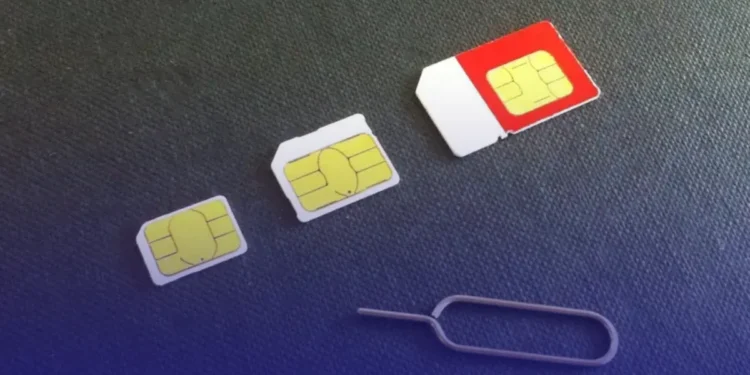The Indian government is thinking about replacing old SIM cards in mobile phones. This comes after an investigation found that some of the chips used in these SIM cards came from China. The National Cyber Security Coordinator and the Ministry of Home Affairs led the investigation. This raised serious concerns about the security of the country’s communication networks.
The investigation revealed that certain SIM cards, used by millions of people across India, might have come from suppliers that used Chinese-made chips. This raised a red flag, as it could make mobile phones more vulnerable to hacking or other security risks. Because of these concerns, the government is now looking into replacing old SIM cards to strengthen the security of mobile communications in India.
The government wants to ensure that no one can misuse these SIM cards or access sensitive information. Replacing the SIM cards would make it harder for hackers to exploit any vulnerabilities.
Why Replace SIM Cards?
In the past, telecom companies sourced SIM cards from trusted suppliers. But some of these suppliers may have used chips from unreliable sources, which caused a security concern. The government is now considering how to replace these SIM cards and ensure they meet higher security standards.
Officials from the government have already started talks with major telecom companies like Reliance Jio, Airtel, and Vi. They are discussing the best way to replace the old SIM cards and make sure that new ones are safe to use. By replacing the old cards, the government hopes to fix any security issues and protect users from potential risks.
How Did the Chinese Chips End Up in India?
SIM cards are usually made by vendors who are trusted by telecom companies. These vendors get their chips from suppliers in countries like Vietnam and Taiwan, which are known for producing secure chips. However, the investigation found that some vendors may have used chips from China, even though they claimed they were from trusted suppliers. This raised concerns about how secure these SIM cards really were.
What Happens Next?
The Indian government plans to improve the process of approving vendors to prevent this from happening again. They want to ensure that all telecom equipment, including SIM cards, comes from reliable sources. The government will also conduct regular checks on all imported telecom equipment to ensure it meets the required safety standards.
In conclusion, the Indian government is taking steps to replace old SIM cards to improve security and protect its citizens. This action could lead to more secure mobile communication in India and prevent possible cyber threats.
Also read: Ghibli Trend: Are AI Filters Revealing Your Original Photos?










